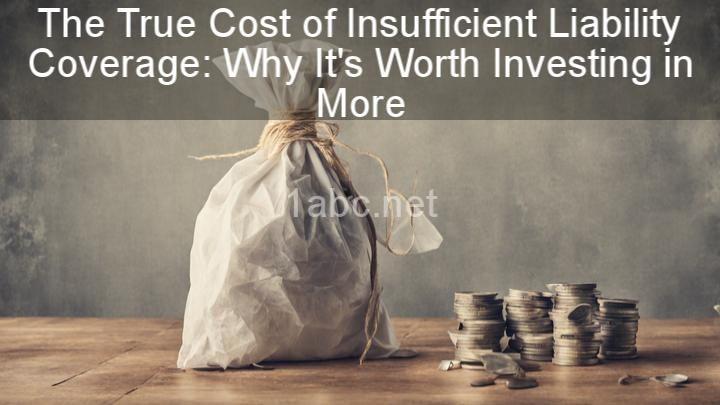Unlocking the Secrets: The Top 10 Questions That Will Save You Money Before Buying Car Insurance
Introduction:
I. Understanding Your Needs
II. Evaluating Coverage Options
III. Researching Insurance Providers
IV. Understanding Discounts and Savings Opportunities
V. Clarifying Policy Terms and Conditions
VI. Evaluating Customer Support Quality
VII. Reviewing Financial Stability Ratings
VIII. Understanding the Claims Process
IX. Reviewing Policy Cost and Payment Options
X. Seeking Professional Advice

Introduction:
Welcome to our friendly guide that will help you save money on car insurance! In this blog post, we will share with you the top 10 questions you should ask before buying car insurance. By asking these questions, you can ensure that you're getting the best coverage at the most affordable price.
I. Understanding Your Needs
Before diving into the world of car insurance, it's important to assess your driving habits and needs. This will help you determine the appropriate coverage for your specific situation.
- How often do you drive?
One of the factors that insurance companies consider when calculating your premium is the number of miles you drive. If you're someone who only uses their car occasionally, you may be eligible for a low-mileage discount. On the other hand, if you have a long commute or frequently use your vehicle for work purposes, you may need a higher level of coverage. - What type of vehicle do you own?
The type of vehicle you own can also impact your insurance rates. Generally, more expensive or high-performance cars tend to have higher premiums. On the other hand, if you own a safe and reliable vehicle with good safety features, you may be eligible for discounts. - Do you have any specific coverage requirements?
Depending on your personal circumstances, you may have specific coverage requirements. For example, if you have a loan or lease on your vehicle, the lender may require you to have comprehensive and collision coverage. Additionally, if you live in an area prone to natural disasters or theft, you may want to consider additional coverage options.
II. Evaluating Coverage Options
Once you have a clear understanding of your needs, it's time to evaluate the coverage options available to you.
A. Determining the minimum coverage required by law
Every state has minimum coverage requirements for car insurance. It's important to familiarize yourself with these requirements to ensure that you're meeting the legal obligations. However, keep in mind that minimum coverage may not provide adequate protection in the event of an accident.
B. Exploring additional optional coverage
While meeting the minimum legal requirements is essential, it's also important to consider additional optional coverage that can provide you with greater protection.
- What is comprehensive coverage?
Comprehensive coverage protects your vehicle against damage caused by events other than collisions, such as theft, vandalism, or natural disasters. If you live in an area where these risks are high, comprehensive coverage can give you peace of mind. - Do I need collision coverage?
Collision coverage pays for damages to your vehicle in the event of an accident, regardless of who is at fault. If your vehicle is relatively new or has a high value, collision coverage is worth considering. However, if you have an older car with a low value, the cost of the coverage may outweigh the potential benefit. - Is rental car reimbursement worth it?
If you rely heavily on your vehicle and would be left stranded without a car in the event of an accident, rental car reimbursement coverage can be a lifesaver. It covers the cost of a rental car while your vehicle is being repaired.
III. Researching Insurance Providers
Choosing a reputable insurance provider is crucial to getting the best coverage and customer service. Here are some steps you can take to ensure you're making an informed decision:
A. Checking online reviews and ratings
Take the time to research different insurance providers online. Read customer reviews and ratings to get a sense of their reputation and customer satisfaction levels. Look for providers that consistently receive positive feedback and have a high rating from independent rating agencies.
B. Asking for recommendations from family and friends
Reach out to your family and friends and ask for their recommendations. They can provide you with firsthand experiences and insights into different insurance companies. Pay attention to any positive or negative experiences they share, as this can help you narrow down your options.
C. Comparing quotes from multiple providers
Once you've done your research, it's time to start gathering quotes from different insurance providers. Take the time to compare the coverage and premiums offered by each company. Remember, the cheapest option may not always be the best, so consider the overall value you'll be getting for your money.
IV. Understanding Discounts and Savings Opportunities
Insurance companies often offer various discounts and savings opportunities to help you lower your premium. Here are a few to inquire about:
A. Inquiring about safe driver discounts
If you have a clean driving record and have not been involved in any accidents or received any traffic violations, you may be eligible for a safe driver discount. This can significantly reduce your premium and reward you for being a responsible driver.
B. Exploring multi-policy discounts (if applicable)
If you have multiple insurance policies with the same provider, such as home and auto insurance, you may qualify for a multi-policy discount. Bundling your policies can save you money and streamline your insurance coverage.
C. Asking about loyalty rewards programs
Some insurance companies offer loyalty rewards programs to their long-term customers. These programs often come with perks such as reduced deductibles or accident forgiveness. Inquire about any loyalty programs that may be available to you.
V. Clarifying Policy Terms and Conditions
Before finalizing your car insurance purchase, it's important to thoroughly understand the terms and conditions of the policy you're considering.
A. Understanding deductibles and how they affect premiums
A deductible is the amount you're responsible for paying out of pocket before your insurance coverage kicks in. Generally, higher deductibles result in lower premiums, but it's important to choose a deductible that you're comfortable with and can afford in the event of an accident.
B. Inquiring about policy renewal procedures and fees
Ask about the policy renewal procedures and any associated fees. Some insurance companies automatically renew policies, while others require you to actively renew. Understanding the process and any fees involved can help you plan ahead.
C. Asking about cancellation policies
Inquire about the cancellation policies of the insurance providers you're considering. Life circumstances may change, and you may need to cancel your policy. Understanding the cancellation process and any fees or penalties involved can help you make an informed decision.
VI. Evaluating Customer Support Quality
Good customer support is essential when dealing with insurance claims or any questions or concerns you may have. Consider the following factors:
A. Checking availability of customer support channels (phone, email, live chat)
Insurance companies should have multiple channels of communication available for their customers. Ensure that they have a responsive customer support team that you can easily reach out to in case of emergencies or inquiries.
B. Asking about claims handling process and turnaround time
Inquire about the claims handling process, including how to file a claim and the expected turnaround time for processing claims. A quick and efficient claims process can make a significant difference in your overall experience with an insurance provider.
VII. Reviewing Financial Stability Ratings
Choosing an insurance company with a strong financial stability rating is crucial for your peace of mind.
A. Understanding the importance of a financially stable insurer
A financially stable insurer is better equipped to handle claims and honor their obligations to policyholders. It's important to choose an insurer that has a solid financial foundation to ensure that they can meet their financial commitments to you.
B. Considering financial ratings provided by independent rating agencies
Independent rating agencies, such as Standard & Poor's or A.M. Best, provide ratings for insurance companies based on their financial stability. These ratings can give you insight into the financial health and strength of the insurer you're considering.
VIII. Understanding the Claims Process
No one wants to deal with the stress of an accident, but it's important to be prepared by understanding the claims process.
A. Inquiring about the claims filing procedure
Ask the insurance provider about the claims filing procedure. Understand what information and documentation you'll need to provide and how to initiate the process.
B. Asking how long it typically takes to process a claim
The time it takes to process a claim can vary between insurance companies. Inquire about the average turnaround time for claims processing to get an idea of what to expect.
C. Understanding any limitations or exclusions in the policy
Familiarize yourself with any limitations or exclusions in the policy. Insurance policies often have specific conditions or exclusions that may affect coverage. Understanding these limitations can help you make informed decisions and avoid any surprises in the event of a claim.
IX. Reviewing Policy Cost and Payment Options
Understanding the cost of your policy and available payment options is essential to budgeting and managing your car insurance expenses.
A. Understanding how your premium is calculated
Ask the insurance provider how your premium is calculated. Understanding the factors that determine your premium can help you identify areas where you can potentially save money.
B. Inquiring about available payment plans (monthly, annually)
Insurance companies often offer different payment plans to accommodate their customers' preferences. Inquire about the available payment options, including monthly or annual payments, and choose the one that works best for you.
C. Asking about late payment fees and grace periods
Life can get busy, and sometimes payments may be missed. Inquire about late payment fees and grace periods to ensure you understand the consequences of missing a payment and any potential penalties involved.
X. Seeking Professional Advice
While it's possible to navigate the car insurance landscape on your own, seeking professional advice can provide you with valuable insights and expertise.
A. Consider consulting with an insurance agent or broker
Insurance agents and brokers are experts in the field and can guide you through the process of finding the best coverage at the lowest price. They have access to multiple insurance providers and can help you compare quotes and coverage options.
B. Asking for their expertise in finding the best coverage at the lowest price
Insurance agents and brokers have a deep understanding of the insurance industry and can provide you with personalized recommendations based on your needs and budget. They can help you navigate through the options and negotiate better rates on your behalf.
Conclusion
By asking these top 10 questions when buying car insurance, you can save yourself a lot of money in the long run. Remember, being an informed consumer is key to getting the best coverage that suits your needs and budget. Take the time to assess your needs, evaluate coverage options, research insurance providers, understand discounts and savings opportunities, clarify policy terms and conditions, evaluate customer support quality, review financial stability ratings, understand the claims process, review policy cost and payment options, and seek professional advice. Good luck on your car insurance journey!
FREQUENTLY ASKED QUESTIONS
What factors affect car insurance rates?
Several factors can affect car insurance rates. Here are some of the main ones:
- Age and driving experience: Younger and less experienced drivers tend to pay higher insurance rates due to the higher risk associated with their driving.
- Driving record: A clean driving record with no accidents or traffic violations generally results in lower insurance rates. On the other hand, a history of accidents or tickets can lead to higher rates.
- Vehicle type: The make and model of your car can impact your insurance rates. Expensive or high-performance vehicles may have higher premiums due to their increased repair costs and theft risk.
- Location: Insurance rates can vary based on where you live. Urban areas with higher traffic and crime rates could lead to higher rates compared to rural or suburban areas.
- Coverage level: The level of coverage you choose, including liability limits, comprehensive coverage, and collision coverage, can affect your insurance rates. Higher coverage limits usually result in higher premiums.
- Credit history: In some states or countries, insurance companies can consider your credit history when determining your rates. A good credit score can potentially lead to lower premiums.
- Deductible amount: The deductible is the amount you have to pay out-of-pocket before your insurance coverage kicks in. Choosing a higher deductible can lower your premiums, but remember that you'll have to pay more in case of an accident.
- Driving habits: Some insurance companies offer usage-based insurance, where they monitor your driving habits to determine your rates. Factors like mileage, speed, and hard braking can influence your premiums.
It's important to note that insurance companies may weigh these factors differently, and rates can vary between insurers. It's always a good idea to shop around and compare quotes to find the best coverage at an affordable price.
How can I lower my car insurance premiums?
Lowering your car insurance premiums can save you money in the long run. Here are some tips to help you reduce your car insurance costs:
- Compare quotes: Shop around and compare insurance rates from multiple providers. This way, you can find the best deal for coverage that meets your needs.
- Increase deductibles: By choosing a higher deductible, you can lower your premium. However, be sure to set your deductible at an amount you can afford to pay out of pocket if an accident occurs.
- Maintain a good driving record: Safe driving habits and avoiding traffic violations can help you qualify for lower premiums. Many insurance companies offer discounts for drivers with a clean driving history.
- Consider a lower-risk car: Insurance premiums can be influenced by the type of car you drive. Cars with high safety ratings and lower theft rates generally have lower insurance premiums.
- Bundle policies: If you have multiple insurance policies (e.g. home and auto), consider bundling them with the same insurance provider. Companies often offer discounts to customers who have multiple policies.
- Ask for discounts: Find out if you qualify for any specific discounts. Some common ones include discounts for good students, military personnel, safe drivers, or for installing safety features in your car.
- Drive less: If you're able to reduce your annual mileage, you may be eligible for a lower premium. Some insurance providers offer discounts to policyholders who drive fewer miles.
- Improve your credit score: In some cases, having a good credit score can result in lower insurance rates. Pay your bills on time and manage your credit responsibly to improve your score.
Remember to review your insurance policy regularly to ensure you have the appropriate coverage for your needs. Additionally, consider speaking directly with an insurance agent who can provide personalized guidance.
What types of car insurance coverage do I need?
When it comes to car insurance, there are several types of coverage you might need. Here are some common ones:
- Liability coverage: This is typically required by law and covers the cost of damages or injuries you may cause to others in an accident.
- Collision coverage: This covers the cost of repairs to your own vehicle in the event of a collision, regardless of who is at fault.
- Comprehensive coverage: This covers damage to your vehicle caused by events other than collisions, such as theft, vandalism, or natural disasters.
- Uninsured/underinsured motorist coverage: This provides protection if you're involved in an accident with a driver who doesn't have insurance or doesn't have enough coverage to pay for your damages.
- Personal injury protection (PIP): This covers medical expenses and sometimes lost wages for you and your passengers, regardless of who is at fault in an accident.
- Medical payments coverage: Similar to PIP, this covers medical expenses for you and your passengers, but usually has lower coverage limits.
- Rental reimbursement coverage: This pays for a rental car while yours is being repaired after an accident.
- Roadside assistance: This covers services like towing, battery jumps, and flat tire changes.
Remember, the specific types and amounts of coverage you need can vary depending on your location, driving habits, and the value of your vehicle. It's a good idea to talk to an insurance agent to determine the best coverage for your individual needs.
Is it necessary to have comprehensive and collision coverage?
Comprehensive and collision coverage are optional types of auto insurance coverage. While they are not required by law, they can provide additional financial protection in certain situations. Comprehensive coverage helps pay for damages to your vehicle that are caused by non-collision events, such as theft, vandalism, or natural disasters. Collision coverage helps pay for damages to your vehicle that result from a collision with another vehicle or object.
Whether or not you should have comprehensive and collision coverage depends on factors such as the value of your vehicle, your financial situation, and your personal preferences. If you have a new or expensive vehicle, you might consider comprehensive and collision coverage to protect your investment. However, if your vehicle is older or has a lower value, you might decide to forgo these coverages and save on insurance costs.
Ultimately, the decision to have comprehensive and collision coverage is up to you. It's important to carefully consider your specific circumstances and insurance needs before making a decision.



